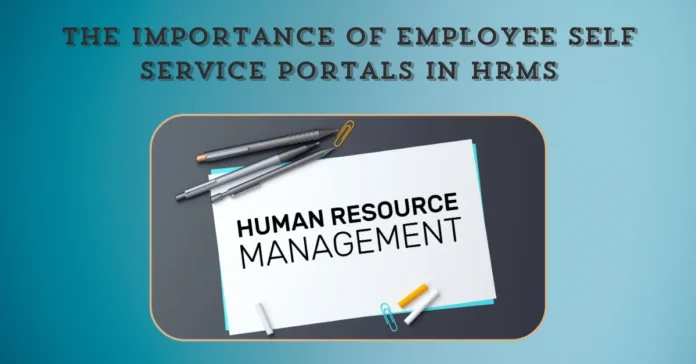In today’s fast-paced work environment, employee self-service portals in Human Resource Management Systems (HRMS) are becoming indispensable. These portals empower employees to manage their own HR-related tasks, streamlining processes and creating a more efficient workplace for both employees and HR teams.
Why Employee Self-Service Portals Matter
- Increased Efficiency and Time-Saving
Self-service portals reduce administrative burdens by allowing employees to perform tasks like updating personal information, accessing payslips, and managing benefits without needing to go through HR. This leads to faster processing times and less paperwork for HR teams. - Improved Employee Empowerment
Empowering employees to handle their HR tasks promotes independence and enhances their engagement. With a self-service portal, employees can view and manage their schedules, request time off, and track their performance or development plans, all without waiting for HR intervention. - Accuracy and Error Reduction
Employees have direct access to their personal data, reducing the risk of errors that can arise from miscommunication or delays in information updates. This ensures that the HR department always has the most up-to-date information. - Cost-Effective for HR Teams
By shifting routine tasks to employees through self-service, HR departments can allocate their time and resources to more strategic tasks like talent development, employee engagement, and compliance. - Enhanced Communication and Transparency
Self-service portals provide employees with immediate access to their records, policies, and HR-related documents. This level of transparency fosters trust between employees and the organization. - 24/7 Accessibility
Unlike traditional HR systems that operate during office hours, self-service portals are available 24/7, allowing employees to access HR services and information anytime, anywhere. This is especially beneficial for global or remote teams.
Common Features of Employee Self-Service Portals:
- Payroll and Compensation: Accessing payslips, tax forms, and salary breakdowns.
- Benefits Management: Viewing, updating, and enrolling in health plans, retirement benefits, etc.
- Leave Requests: Submitting time-off requests and tracking leave balances.
- Personal Information Updates: Editing personal details such as address, contact info, and emergency contacts.
- Training and Development: Tracking training programs, certifications, and performance goals.
Conclusion
Employee self-service portals are not just a convenience—they are an essential part of modern HRMS. By allowing employees to manage their own data and tasks, organizations can create a more productive, engaged, and satisfied workforce. It’s a win-win for both HR teams and employees!
#HRMS #EmployeeSelfService #HRTech #WorkplaceEfficiency #EmployeeExperience #HRInnovation #DigitalTransformation #HRSoftware #SelfServicePortal #HRAutomation

